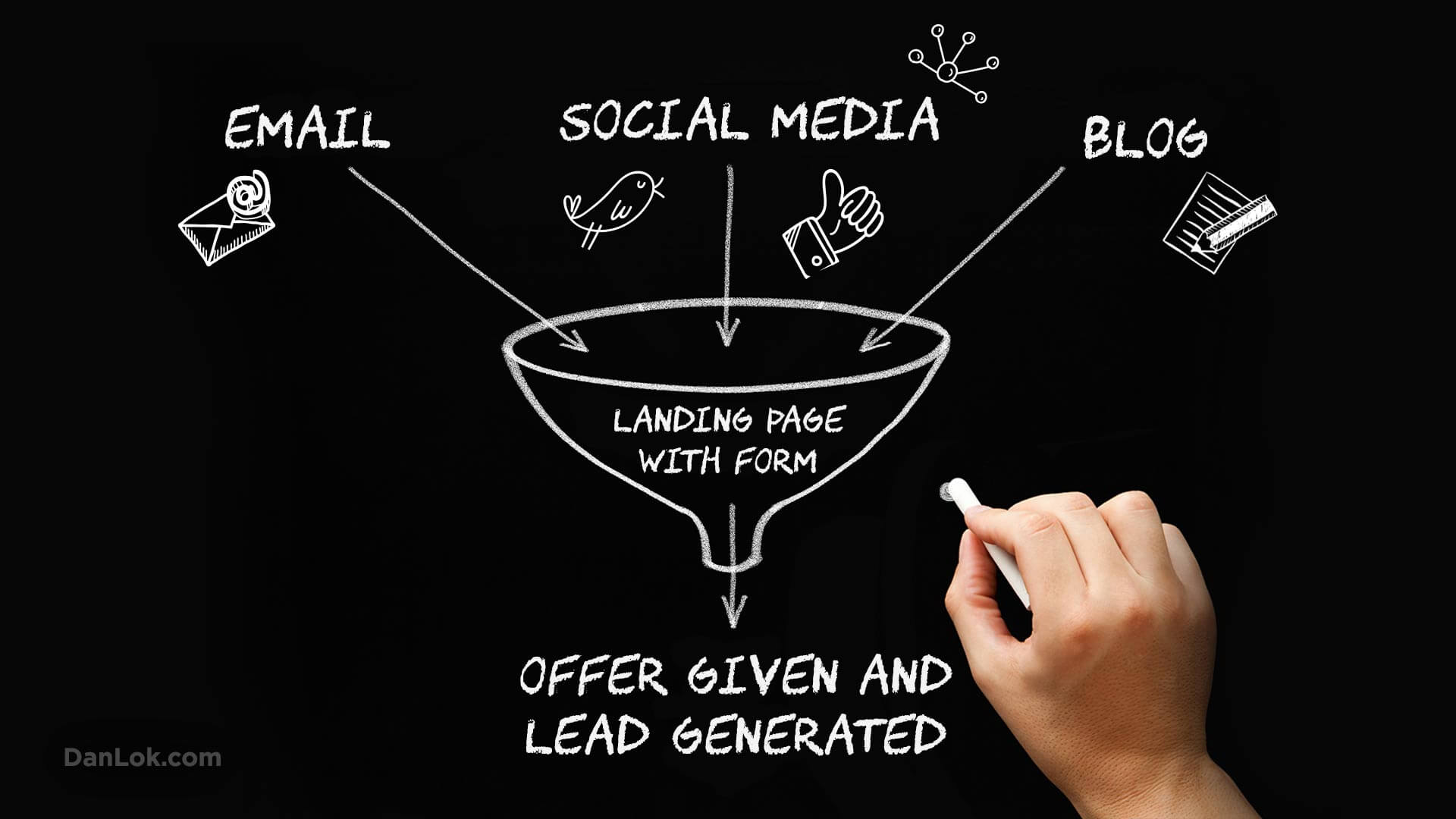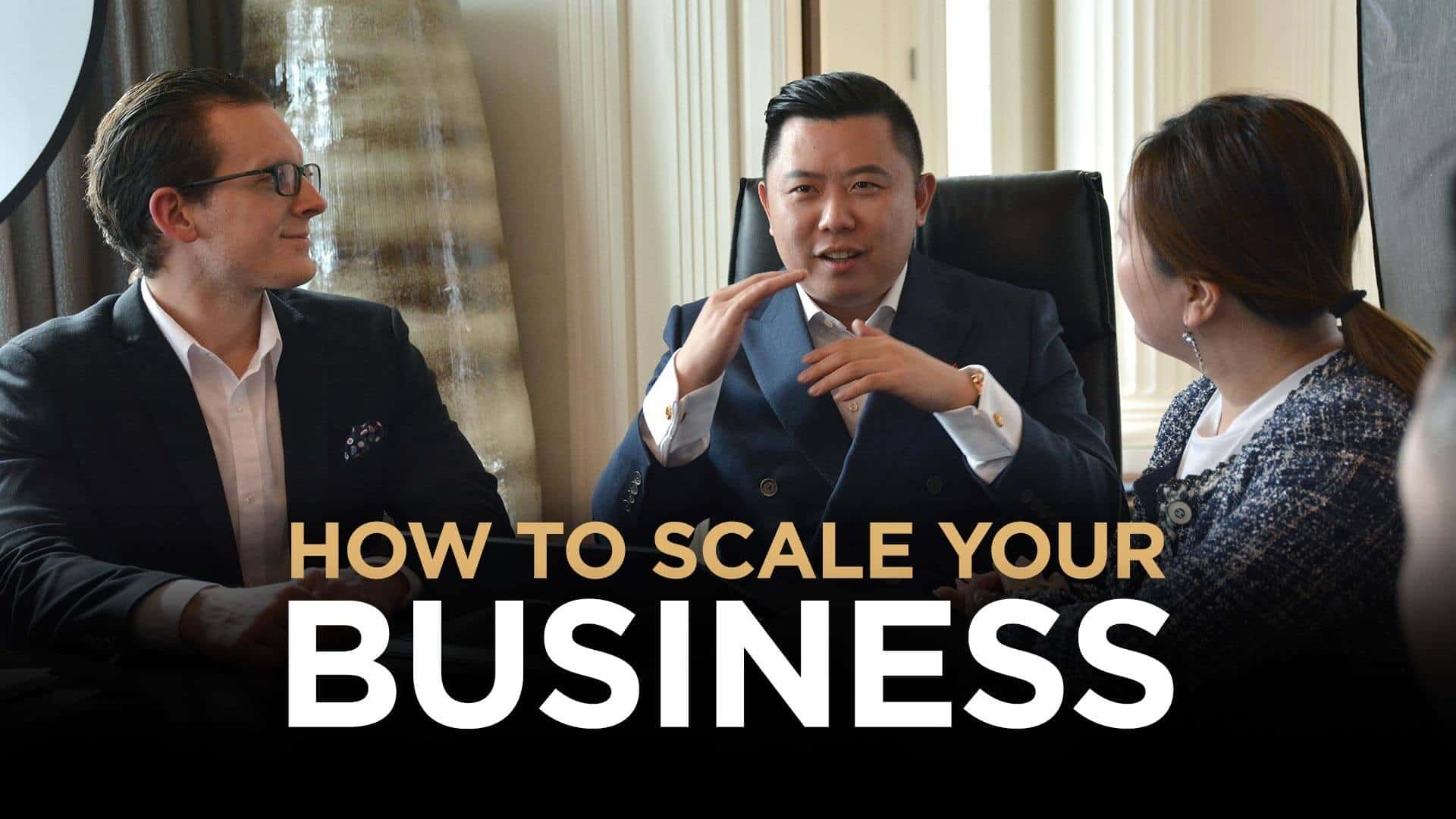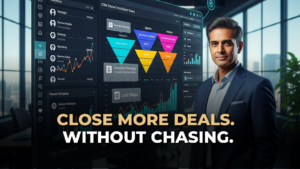Should you scale your business if you’re ready to increase your profits and revenue stream? Many entrepreneurs and new business owners desire to be the next fast-growing business. They’re ready to get more clients or sell more offers. But too often they don’t have the capacity or the know-how to move to the next level. To move to the next level, first, we need to talk about why you want to scale it.
Table of Contents
- What To Consider Before You Scale
- 1. Sell High-Ticket Offers
- 2. Sell An Offer That Is Infinite
- 3. Invest In More Lead Flow
- 4. Hire Skilled High-Ticket Closers
- 5. Hire Rainmakers That Are Hungry
- 6. Hire Qualified Closers
- 7. Have an Offer, a Flow, and an Army of Closers
Some business owners think, “If I want to make more money, I need to scale.” This may or may not be the case. A company can make over 50 million a year, yet have a net that’s less than 100 thousand dollars a year. So bigger is not always better. Better is better.
The point of scaling is to make more profit, but not every business is meant to scale.
What To Consider Before You Scale
Whether you scale your business depends on your goal. You might be happy with a laptop lifestyle, being a digital nomad making a couple hundred thousand a year to be able to travel. If that’s all you want, there’s no need to grow your business.
If you’re scaling just to make more money, that’s not a good enough reason. A better reason is you need more capital so you can have better infrastructure. Or, you want to reach more people and serve more people. Or you need to scale in order to invest in better technology. Those are all good reasons to scale.
If you’re ready to scale, ask yourself these questions. Does there need to be a margin? How many more employees would you need to hire? Would you need a new office? Would you still have the same margin?
If your business is making 50 million and nets 100 thousand a year, and you double that to 100 million, that’s great. Now you’re making 200 thousand net a year. But to get to this next level, how many employees would you need? Would you need more inventory or equipment?
You want gradual growth for your business. The Startup Genome Report’s coverage of premature scaling found that “70 percent of startups scaled too soon in some aspect of their business, directly contributing to their eventual failure.”
70 percent of startups scaled too soon in some aspect of their business, directly contributing to their eventual failure. - Genome Report Share on XThink about what your margin would be. Your ideal profit margin depends on the type of industry you are in. For example, if you’re in the food service business, you could have a profit margin of 3.8%. If you are an accountant, you could have a profit margin of 19.8%. It doesn’t necessarily mean one business is doing better than the other. One has less overhead, while another may need to rent space and equipment and invest in raw materials.
Watch this video about the steps to scale your business.
To scale your business, you will need three things: a high-ticket offer that is infinite, a steady lead flow, and a team of high-ticket closers.
1. Sell High-Ticket Offers
Most businesses are what I call a one product pony, which limits their ability to scale. They have only got one product that they’re selling for $30. If the product cost the business $5, they’re making a $25 profit per unit. Or, if that’s a $30 product they’re selling through e-commerce, the most that they could invest to acquire a customer is $25 because that’s their profit margin. For each sale that they make, they can spend no more than $25 to acquire a customer because $5 is their cost.
You can only go to so many channels or use so many ways to acquire that particular customer if you’ve only got one product. The customer buys it once and they don’t have to buy it again. That means you have to constantly market and get new customers.
Now let’s take a look at a different scenario. Let’s say you’ve got not one product but a product line or back end products that you sell to the same customer. And instead of selling low ticket, you’re selling high-ticket.
If you’re selling high-ticket items, you’re first selling a $2,000 product, then a $5,000 product and then a $10,000 product to the same customer. In that case, the annual value of a customer is not $25 for a one time sale. It is $10,000. You have a percentage of customers that will first buy the $2,000 product. Later, they buy the $5,000 product, and then the $10,000 product. Hypothetically let’s say that’s the case. Now it’s a very different game.
Instead of spending $25 to acquire a customer, you can spend $500 to $5,000 depending on the lifetime value of the customer. Maybe the lifetime value of a customer who stays with you is 2 to 20 years. The first year I could spend up to $10,000. That gives the business owner an edge over someone who can only spend $25.
2. Sell An Offer That Is Infinite
Another aspect to consider is how easily you can scale your offer. I call that the fulfillment aspect. If you’re selling something that takes a long time to make, like a sofa, or something handmade, it’s going to be difficult to scale. If you’re selling software, it doesn’t matter if you’re selling 1, or 500 or 50,000 of the same product. You can scale the business just like that. I’ll need more customer support and more infrastructure, but the product itself is basically infinite.
Businesses or Offers That Scale
Tech companies using a software-as-a-service (SaaS) model of producing goods and services. With the lack of physical inventory, low operating overhead, and little need for infrastructure, these companies can scale quickly.
Other offers that scale quickly include eBooks, online courses, and paid subscriptions. You do the work once, and have the potential to reach hundreds, thousands, even millions of people.
Rental property is another type of scalable business. It requires more capital, but you receive payments for years after the property is paid for. Downsides include difficult tenants and repair overhead.
Short term rentals such as Airbnb are growing in popularity as a source of income.
Software as a service, eBooks, courses, rental, and Airbnb are scalable. Share on XBusinesses or Offers That Don’t Scale
Businesses which have operating costs tied to an increase in sales are not ideal to scale. For example, a dry cleaning business has natural limitations: location, size of equipment, and proximity of customers. If you want to scale, you will need to open a new location and incur a new set of risks: hiring new employees, hiring a manager (since you can’t be there), investing in new equipment and a new location. And you will never be able to serve over a million people at any given location.
3. Invest In More Lead Flow
One key step to scaling that many entrepreneurs and business owners underestimate is ad spend for marketing. Many of these owners want to go cheap. They want to spend the least amount of money to acquire the customer.
Identify Your Ideal Buyer
That kind of mentality is not effective for a business growth strategy. In order to scale, you need to outspend your competitors. First, identify your ideal buyer and their needs. How do they learn more about what they want to buy? Do they conduct consumer research by reading consumer reviews? Do they read blogs and industry publications? Build a company presence where your buyer does their research.
If my competitors can only spend $200 to acquire a customer and I can spend $2,000, I could go to so many more channels and test so many more traffic sources in order to scale. I could go to Facebook, YouTube, Instagram, and many more.
That gives me way more options to scale fast. If my competitor cannot afford to go offline or do any offline marketing when I can, the lifetime value of my customer is high.
How much should you spend to acquire your leads?
The amount you spend depends on your industry. According to a recent benchmarks report, “The media and publishing industries report the lowest cost per lead at $11 to $25. Software, information technology and services, marketing agencies, and financial services companies all report the highest average cost per lead at $51 to $100.”
A company’s ability to reach their revenue goals depends on the number of leads it can generate. In the same survey, “over 70% of companies not achieving their revenue goals generate fewer than 100 leads per month, and only 5% generate more than 2,500 leads per month.”
Your company could be running ads on Facebook, Instagram, and Google to bring in the leads. Then your marketing campaigns and the traffic generate a steady stream of leads. At that point, you are ready to scale up to the next level, to take your focus from marketing to sales. At that point, the next bottleneck to scaling your business will be having enough closers.
To scale your business, invest in leads on social media and other sources.
4. Hire Skilled High-Ticket Closers
At what point when you are scaling your business do you need closers? It depends on the value of your offer. When you’re selling products or services that cost more than $5,000, it’s very difficult to make a sale through a webpage or video. You need someone to get on the phone one-on-one and close that particular prospect. What you’ll need is a high-ticket closer, a salesperson who closes premium value offers.
At this level, sales are consultative, not transactional. With transactional sales, the business is more focused on selling the product, so it could become just a one time purchase for the customer. With consultative sales, the business is more focused on a long term relationship with the customer.
The Role of The Closer
When the prospect is ready to invest in a $5000 offer, they book a call with a closer. The closer builds rapport with the prospect and asks questions to find the prospect’s pain points and challenges, budget and timeline. It is the job of the closer to find out if the offer is the solution to the prospect’s pain points. If the offer is not the solution the prospect needs, then there is no sale.
The closer also asks questions to learn more about the prospect’s budget and timeline. Some prospects may think that a $5000 or $10,000 program is a huge investment. The closer handles the prospect’s objections and answers questions the prospect may have. For example, a $10,000 program may seem like a big investment, but if the prospect can 10x their revenue from $100,000 to $1,000,000 as a result of the program, then they will see the value of the investment.
Most entrepreneurs realize they need closers when they’re scaling their marketing. Share on XTheir ad doesn’t increase sales, so they bring someone on to close the sale. If the closer isn’t trained to close high ticket offers, they will struggle to close the deal.
Having a Closing Team
The way to scale quickly is to have access to a group of trained closers who are ready to talk with prospects as soon as you ramp up your marketing and have the leads. If you have enough closers to follow up with the increased lead flow, you don’t have to lower your marketing budget or pause your ad.
You always want to have more than one closer even though you might just need one to scale. This way if one leaves, you have a replacement.
At my company, we have over 100 closers to close our own programs and products, so if one leaves, there are 99 to replace that particular person. That’s how we are able to scale quickly. We have enough skilled closers to close prospects on the phone after they’ve seen our ad or watched our masterclass.
5. Hire Rainmakers That Are Hungry
You’re not going to find good salespeople the traditional way. I’ve gone to sites that run ads. The problem is any salespeople that are looking for a job are not good salespeople. If they were good salespeople they won’t be looking for a job. The best salespeople are already making good money and commissions.
The best salespeople are also hungry. If you hire a salesperson and pay them a base salary and even some kind of bonus, they can’t even close. A good salesperson is like a hunter. They believe that, “You eat what you kill.” A bad salesperson is not hungry. Most of them want safety and security. They become the typical salaried person that isn’t motivated to bring in sales. A good closer needs to be commission based, not on a salary. The more they close, the more sales they make, the more money they make. The sky is the limit for their income. They are even able to sell at a higher price point. If you do find that superstar that is producing a lot of sales, that person becomes your rainmaker.

6. Hire Qualified Closers
After you find closers, how do you know if they are good? One way is to role play with them. Play the prospect and ask them to sell you your product or service. Give the closer different objections and listen to how they handle those objections. Do they sell like a typical salesperson? For consultative sales, they need to sell more like an enrollment coach and not push the sale.
Find out more about their closing philosophy. Do you want them to have a Wolf of Wall Street angle? Do you want them to just get the money? Or do you want them to sell to the customer only if it’s a good fit? You don’t want customers who never want to hear from you again.
Also, while they are closing for you, pay close attention to the sales that they don’t make. Are they pissing off the customers or forcing them to buy something? You don’t want a salesperson who could ruin your reputation and relationship with your customers without your knowing it.
7. Have an Offer, a Flow, and an Army of Closers
If you’re thinking of scaling your business, think of a triangle, because you’ll need three things.
First, you need a scalable offer, an offer you can deliver to massive numbers of people without more infrastructure. Maybe it’s software. Maybe it’s a digital product. It’s something that you can sell to one person or 10,000 people while your work is essentially the same.
Second, you need consistent lead flow. It can be through social media, pay per click or even an infomercial.
Third, you need closers that can close. If you have a scalable offer and steady lead flow, you can add more closers and have 100 to 400 thousand dollars more to your revenue. Next, you can take your profit and reinvest into that lead source so you can scale and get more leads. And then you hire more closers, get more leads, hire more closers. Before you know it, you’ve got a pretty decent sized business.
Summary
Should you scale your business? Some business owners make the mistake of scaling their business as soon as they can to try to maximize their revenue. However, there are many factors to consider before you scale, such as your profit margin.
Businesses that have a high ticket offer that is infinite have a higher chance of scaling successfully. They also invest more into their lead flow.
Once a business has a steady stream of leads, they can hire a team of trained high ticket closers to close deals for them. These highly trained salespeople are like enrollment coaches. They will close the sale only if the prospect is the right fit for the offer.
They are paid by commission only, so everyone wins when an offer is closed. This means the prospect invests in an offer answers their needs, the closer has made a commission, and the business has a sale.
Are you making six figures and you want to take your business to seven figures and beyond? Do you want to take your business to the next level and generate predictable and sustainable ROI every month? Click on this link to find out more.



